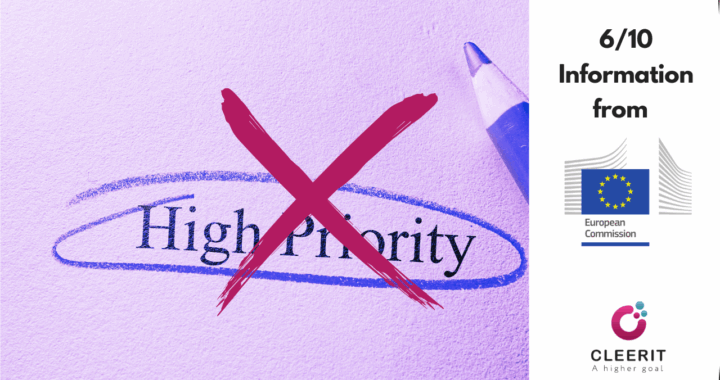On October 6, the European Commission (EC) published a letter informing the three European Supervisory Authorities that two delegated CSRD acts have been de-prioritized:
❌ the DA on ESRS standards for certain third country undertakings, currently scheduled to be adopted by the EC in Q2 2026, and
❌ the DA on standards for the limited assurance of sustainability reporting currently scheduled for Q4 2026.
In consultation with the EU co‑legislators, the EC has decided that it will not adopt these acts, qualified as non‑essential for the achievement of EU policy objectives, before 📆 1 October 2027.
The ESRS standards for certain third country undertakings had already been rescheduled 2 years later than the original date.
The CSRD originally requires the adoption of limited assurance standards by the EC by 1 October 2026 at the latest to clarify what is expected from practitioners when carrying out a limited assurance engagement regarding the sustainability information reported pursuant to the ESRS.
ℹ️ The CSRD empowers the EC to adopt delegated and implementing acts to specify how competent authorities and market participants shall comply with the obligations laid down in the directive.
Delegated acts (DA) are non-legislative acts adopted by the EC that serve to amend or supplement the non-essential elements of the legislation.
In the EU legal framework many of the rules are regulatory and implementing standards (Level 2) that supplement or specify the EU Regulations and Directives (Level 1).
The EC explained that in the last legislature, level 1 acts empowered the EC to adopt around 430 level 2 measures, and that a “high volume of level 2 acts can lead to compliance costs and regulatory complexity for stakeholders, while demanding significant resources from co‑legislators to scrutinise them”.
115 empowerments have been considered as non-essential for the effective functioning of the Level 1 legislation and for the achievement of EU policy objectives – including the DAs on ESRS for certain third country undertakings and on the standards for the limited assurance of sustainability reporting.
Where empowerments have legal deadlines, the Commission will propose to amend or repeal them during the upcoming revisions of the relevant Level 1 acts.
The EC explained that the “de‑prioritisation of some level 2 measures is a pragmatic approach that can deliver simplification quickly, in line with the savings and investments union objectives and the Commission’s simplification agenda”.

